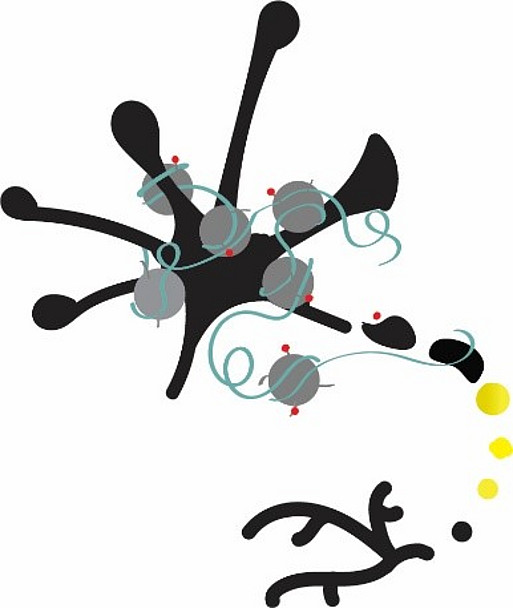Dr. Maria Felicia Basilicata
Research Project
Epigenetics of rare developmental diseases
Since the formulation of the humoral theory, the studies on the etiologies underlying impaired learning and behaviour skills (e.g. Autism Spectrum Disorder, Intellectual Disability) have caught the interest of scientists of all eras. The advent of the usage of genome sequencing as a diagnostic tool has highlighted a strong genetic component at the origin of them. The most enriched class of mutations in Neurodevelopmental Disorders are chromatin machinery genes, for example in the Basilicata-Akhtar syndrome.
Chromatin, the complex of DNA and proteins that contribute to the packing of the genome, is subject to numerous regulatory mechanisms that impact gene expression. The study of its function typically focuses on the cell nucleus and gene transcription. However, alterations in its activity may also affect communication between other organelles, e.g. the plasma membrane, mitochondria, ER and lysosomes, as well as metabolism and finally cellular interactions with the environment. Research in our laboratory focuses on the developmental and pathophysiological mechanisms which lead to cellular homeostasis loss in ID caused by chromatin regulatory gene mutations.
We look at how biological sex influences disease penetrance and how much the sex chromosome complement affects cell susceptibilities. We seek which cellular environments and metabolic states render certain cell types more vulnerable in chromatinopathies and unravel the critical developmental time window when the adverse cellular environments shape the disease phenotypic traits.
We employ a multidisciplinary approach through the combination of human and mouse embryonic stem cell culture, iPS reprogramming, patterned organoids and in vivo hybrid mouse models. The methods include CRISPR engineering, state-of-the-art multiomics, expression analysis, high-resolution microscopy and functional assays (e.g. Incucyte, FACS analysis, Real-time metabolic rates).
Within the Institute of Human Genetics, the characterization of new candidate disorder genes belonging to this family class and the analysis of novel variants is ongoing and will fuel and expand future research in the lab.
We employ a multidisciplinary approach through the combination of human and mouse embryonic stem cell culture, iPS reprogramming, patterned organoids and in vivo hybrid mouse models. The methods include CRISPR engineering, state-of-the-art multiomics, expression analysis, high-resolution microscopy and functional assays (e.g. Incucyte, FACS analysis, Real-time metabolic rates).
Within the Institute of Human Genetics, the characterization of new candidate disorder genes belonging to this family class and the analysis of novel variants is ongoing and will fuel and expand future research in the lab.
Positions held
| Since 12/2022 | Group Leader, Institute for Human Genetic, University Medical Center (UMC), Mainz (HPG fellowship) |
| Since 05/2020 | Senior Research Associate, Institute of Molecular Biology, Mainz |
| 2020-2021 | Team Lead An Interim (Gene dosage alterations lab, maternity leave), Institute of Molecular Biology, Mainz |
| 2014-2020 | Postdoctoral Fellow; MPI of Immunobiology & Epigenetics, Freiburg |
Education
| 2014 | PhD in Biology, University of Freiburg. Germany |
| 2009 | MSc in Medical Biotechnology, University of Naples (Federico II). Italy |